The best coconut oil substitutes are butter, extra-virgin olive oil, and avocado oil. Canola oil and applesauce also work well.
Coconut oil has been a culinary darling for its flavor and health benefits. But a vast world of alternatives is waiting to elevate your dishes.
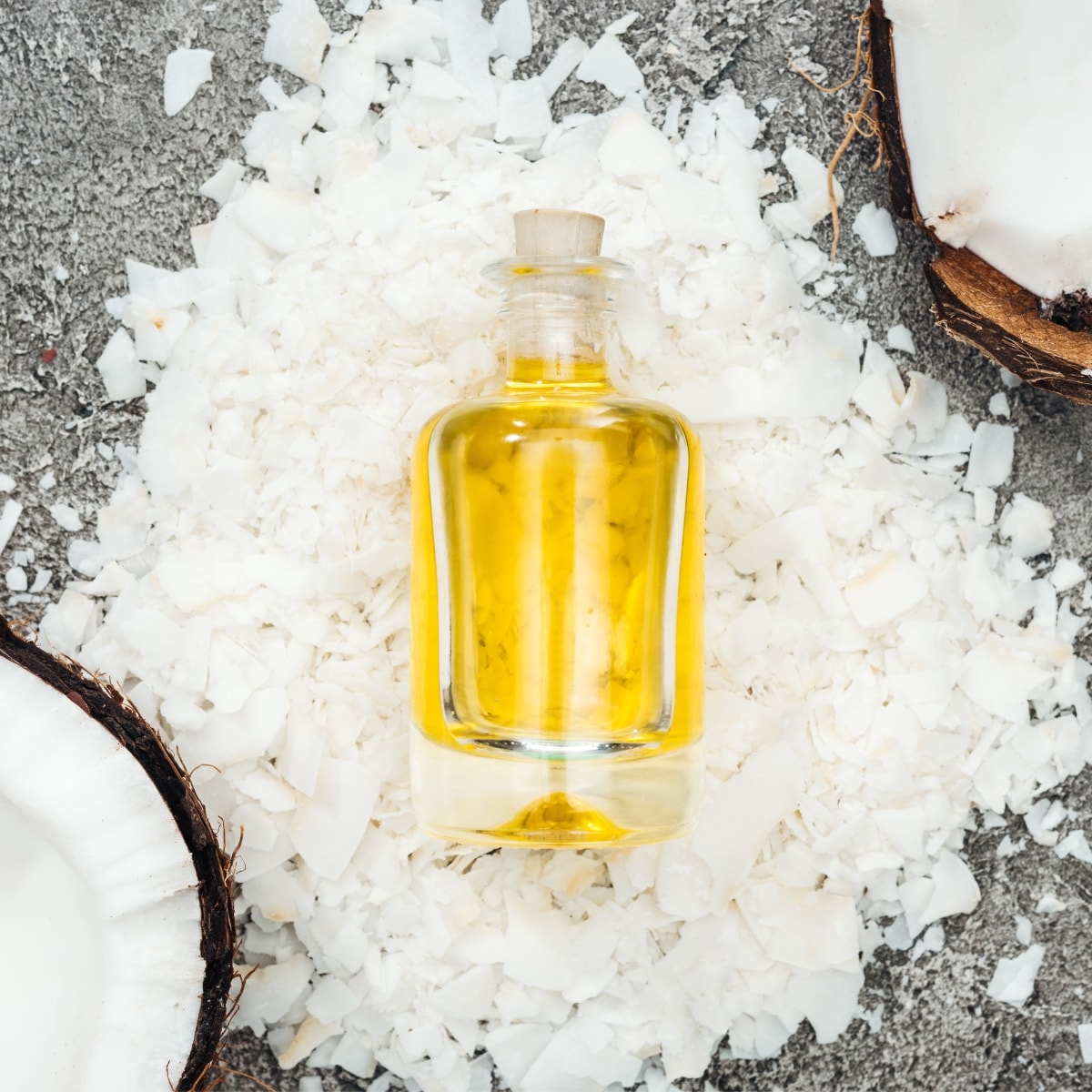
Whether you want to try new ingredients or need an emergency replacement, this list has you covered.
From well-loved butter to nutty hazelnut oil and savory beef tallow, each brings a fantastic flavor profile.
Ready to reimagine your recipes both in cooking and beyond? Keep reading!
Best Coconut Oil Substitutes
Each alternative has unique flavors, textures, and nutritional benefits. Their distinct differences let you explore new horizons in the kitchen.
From light avocado oil to heart-healthy olive oil, the range of substitutes is extensive and versatile.
And it doesn’t stop at oils. Try applesauce for a healthier baking alternative. There’s also beef tallow for an unbeatable richness in your dishes.
Remember, each substitute has its unique taste, so adjust based on your recipe and ingredients. Think coconut oil is irreplaceable? Think again.

1. Butter
When it comes to substitutions, butter is a classic switch for coconut oil, especially in baking.
It adds a rich, savory undertone to recipes. It gives cookies, cakes, and pastries a delightful crumb and taste.
When it comes to cooking, it’s suitable for sautéeing and frying. Remember butter has a lower smoke point, so keep the heat moderate.
You can usually use a 1:1 ratio when replacing coconut oil with butter. However, butter has water content, which can affect the texture of baked goods.
How to substitute: Use a 1:1 ratio for coconut oil in any recipe.
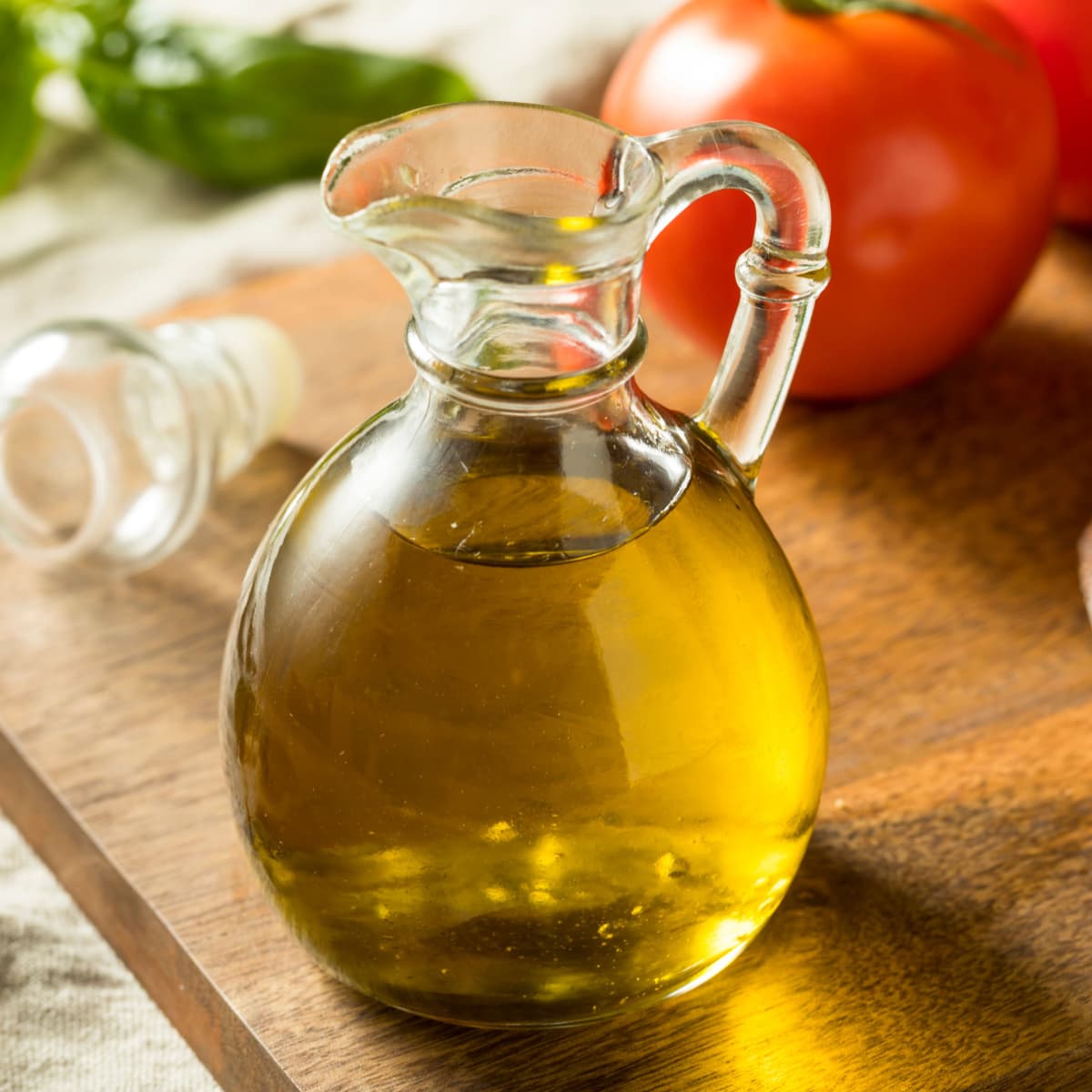
2. Extra-Virgin Olive Oil
Meet the Mediterranean staple! Extra-virgin olive oil (EVOO) is not only heart-healthy but also versatile.
When substituting for coconut oil, EVOO offers a distinctive fruity flavor. It’s perfect for dressings, marinades, and drizzling over finished dishes.
While it can be used for sautéeing or light frying, keeping the flame low is best. Olive oil’s smoke point is not as high as some other oils.
Extra-virgin olive oil gives baked goods a moist texture and can create an exciting taste twist!
How to substitute: Use in 1:1 ratio for coconut oil in any recipe.
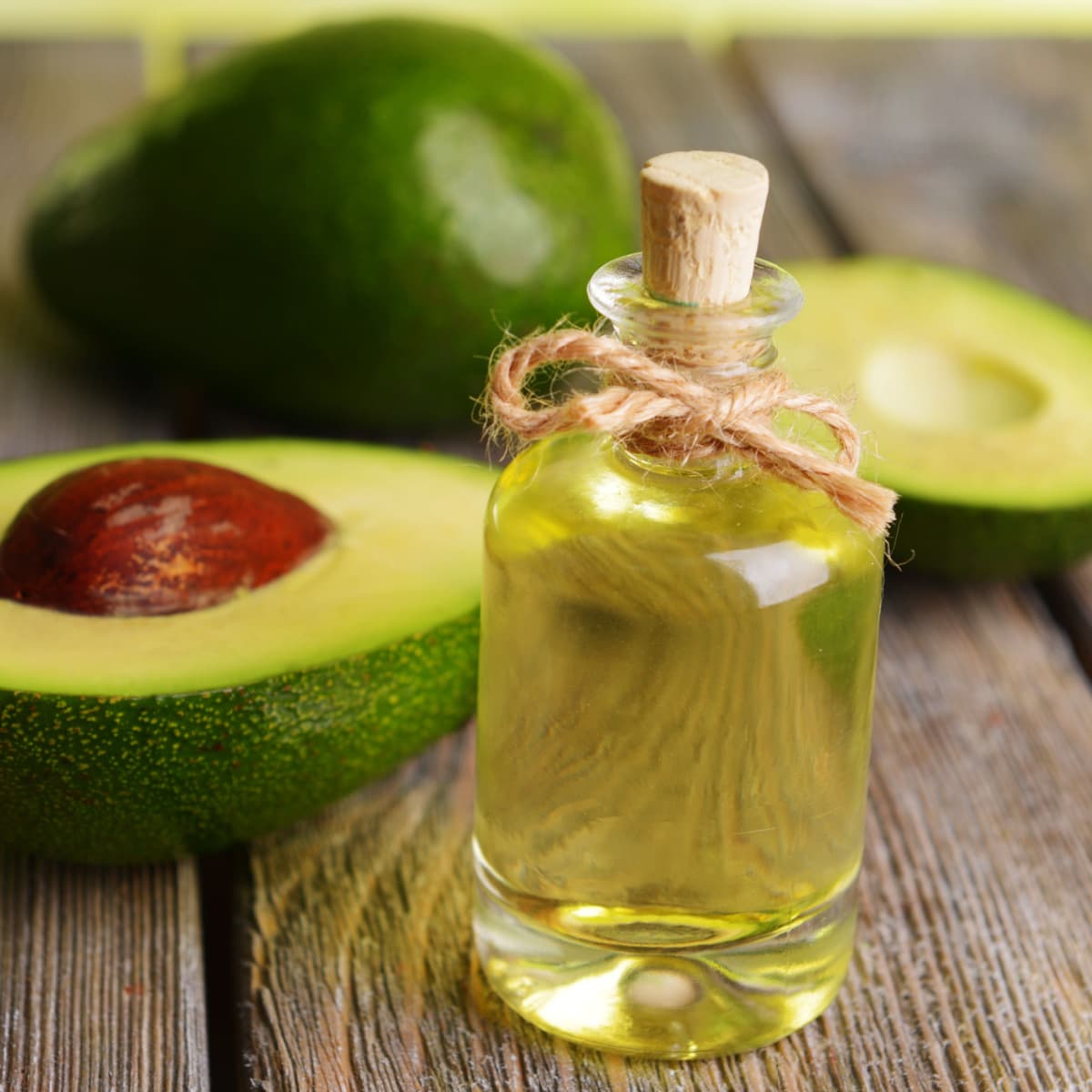
3. Avocado Oil
Avocado oil is the green gold of oils! It’s loaded with good fats and has a high smoke point. This coconut oil substitute is ideal for high-heat cooking methods like grilling, roasting, or frying.
Avocado oil’s mild, buttery flavor makes it an excellent substitute for coconut oil in baking.
When coconut oil’s distinct taste isn’t desired, avocado oil is an excellent substitute. It’s a fantastic way to get moist, fluffy outcomes without altering the flavor profile too much.
It works wonders in recipes requiring neutral flavor oils. This substitute ensures your dishes remain healthy and delicious.
How to substitute: Use a 1:1 ratio for coconut oil.
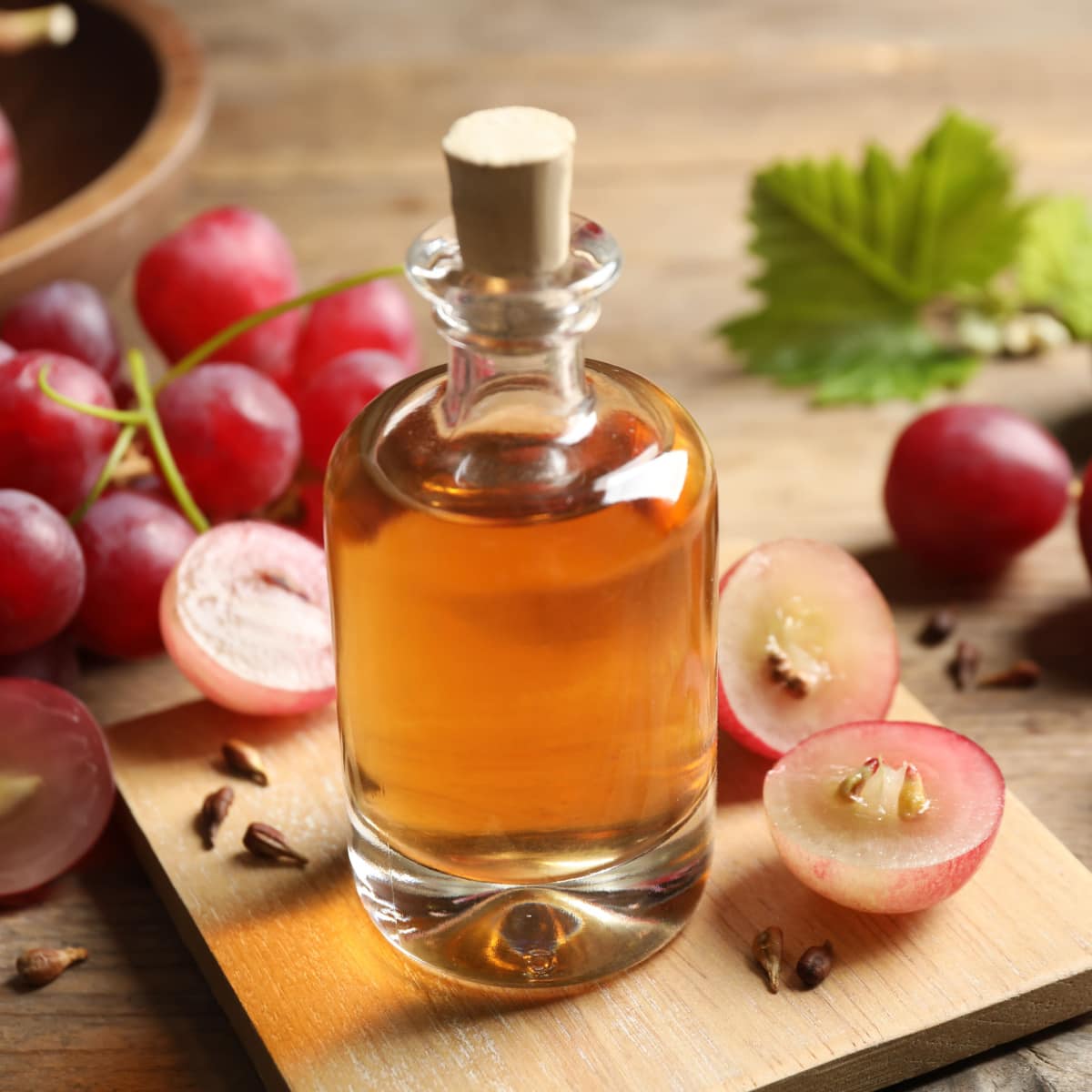
4. Grapeseed Oil
This is the winemaker’s gift to the kitchen. Grapeseed oil is made from pressed grape seeds, offering a clean, light taste.
Its high smoke point makes it a go-to for stir-frying, sautéing, and deep-frying. It slips seamlessly into recipes when replacing coconut oil due to its neutral flavor profile.
Grapeseed oil’s light texture and neutral taste make it perfect for salad dressings and marinades.
Plus, it’s rich in polyunsaturated fats and Vitamin E, making it a heart-friendly option.
How to substitute: Use a 1:1 ratio for coconut oil in any recipe.

5. Sunflower Oil
Let the sun shine on your dishes with sunflower oil as a substitute for coconut oil. With its golden hue and subtle nutty flavor, is a versatile substitute. Its relatively high smoke point means it’s excellent for frying, roasting, and baking.
Whether baking brownies or frying some crispy snacks, sunflower oil is a fantastic substitute. Bonus: it has loads of Vitamin E, an antioxidant powerhouse!
How to substitute: Use a 1:1 ratio for coconut oil in any recipe.

6. Canola Oil
Derived from the seeds of the canola plant, this oil offers a light and mild flavor. Its neutral taste makes it a subtle and seamless substitute for coconut oil.
Canola oil’s medium-high smoke point is suitable for frying, baking, and roasting.
Rich in omega-3 and omega-6 fatty acids, it’s also heart-friendly. When you want the flavors of your ingredients to stand out, reach for canola oil.
How to substitute: Use a 1:1 ratio for coconut oil in any recipe.

7. Hemp Seed Oil
With its nutty and earthy undertone, hemp seed oil is a unique and flavorful substitute. Best used unheated, this oil is rich in omega fatty acids and offers an exceptional nutritional profile.
It shines in dressings, drizzles, and dips, bringing a distinct nutty and earthy flavor. It’s also a popular addition to health shakes and smoothies. It gives a boost of essential fatty acids.
When opting for hemp seed oil, consider the specific demands of your recipe.
How to substitute: Use a 1:1 ratio for any recipe. You can also start with less amount depending on your taste preference.
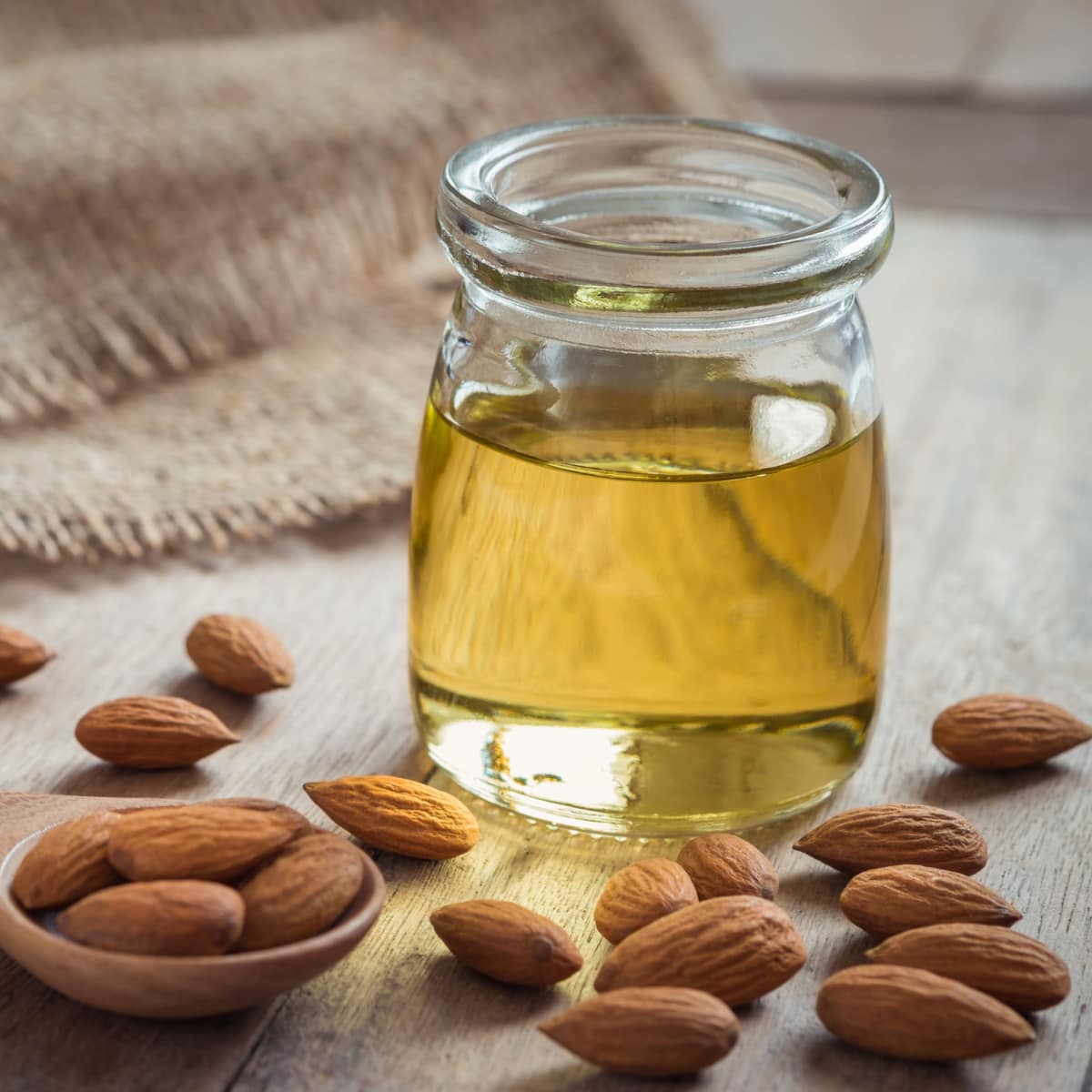
8. Almond Oil
Almond oil is not just for skin care. It’s a delightful substitute for coconut oil in culinary creations.
Its slightly nutty and sweet taste is a star in desserts and baked goods. Almond oil’s smoke point is medium, so gentle cooking is the way to go.
Imagine almond-infused pastries, cookies, and light sautés, all boasting a hint of natural sweetness.
How to substitute: Use a 1:1 ratio for any recipe.
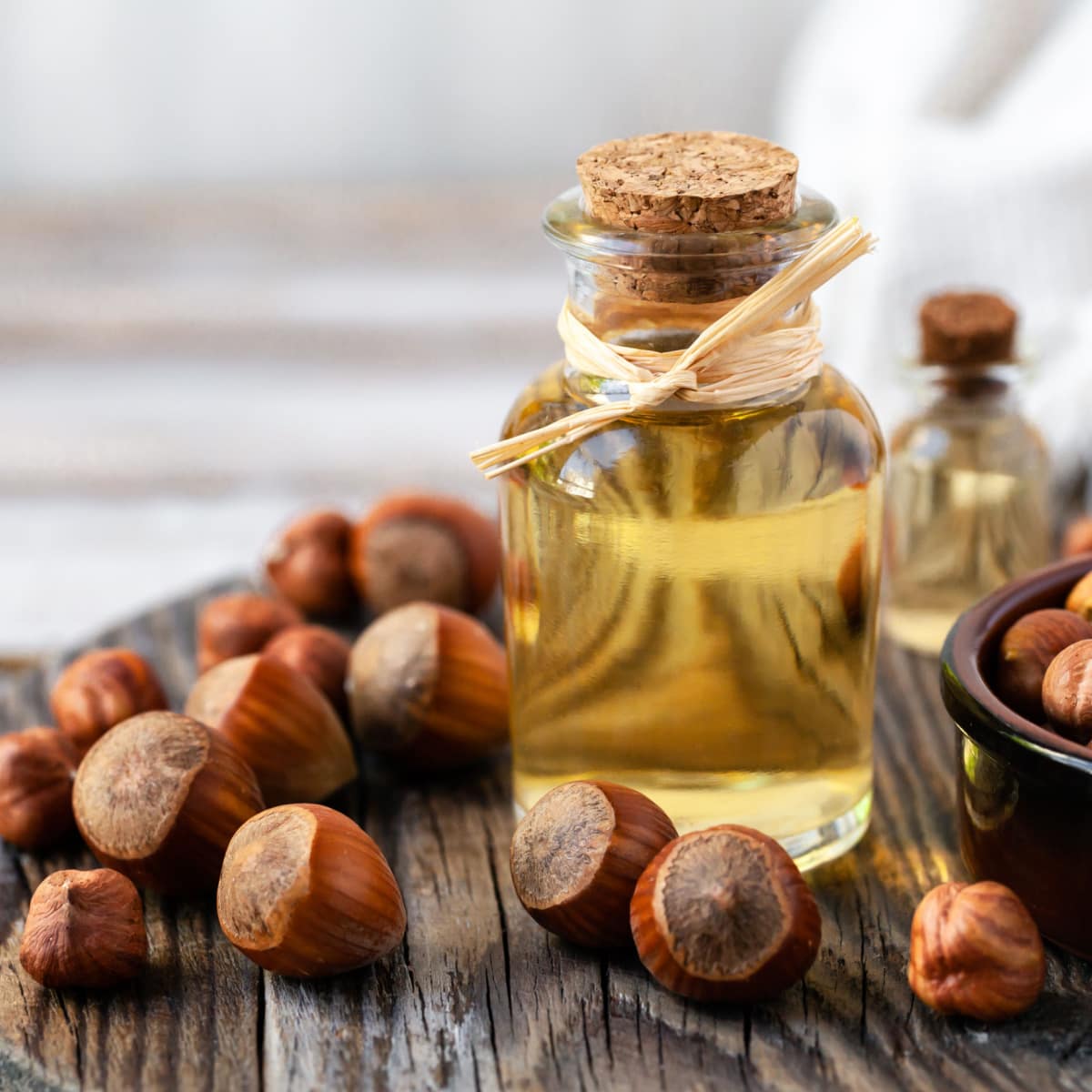
9. Hazelnut Oil
With its profoundly aromatic and nutty flavor, hazelnut oil can transform ordinary recipes into gourmet delights.
As a substitute for coconut oil, it’s ideal in desserts, baked goods, and salad dressings.
It has a high smoke point making it perfect for high-heat cooking methods like baking and frying.
Drizzling it over pasta or using it in a chocolate dessert can be a game-changer!
How to substitute: Use a 1:1 ratio for any recipe.

10. Beef Tallow
It’s back to basics with this one! Beef tallow is rendered beef fat. Its rich and savory profile makes it a luscious substitute for coconut oil, especially in meaty dishes.
Its high smoke point makes it excellent for frying, sautéing, and even baking savory pastries.
It offers a depth of flavor that’s hard to replicate. And for those who follow a nose-to-tail eating approach, beef tallow is a must-try.
How to substitute: It can be used in solid form or melted in a 1:1 ratio for coconut oil.
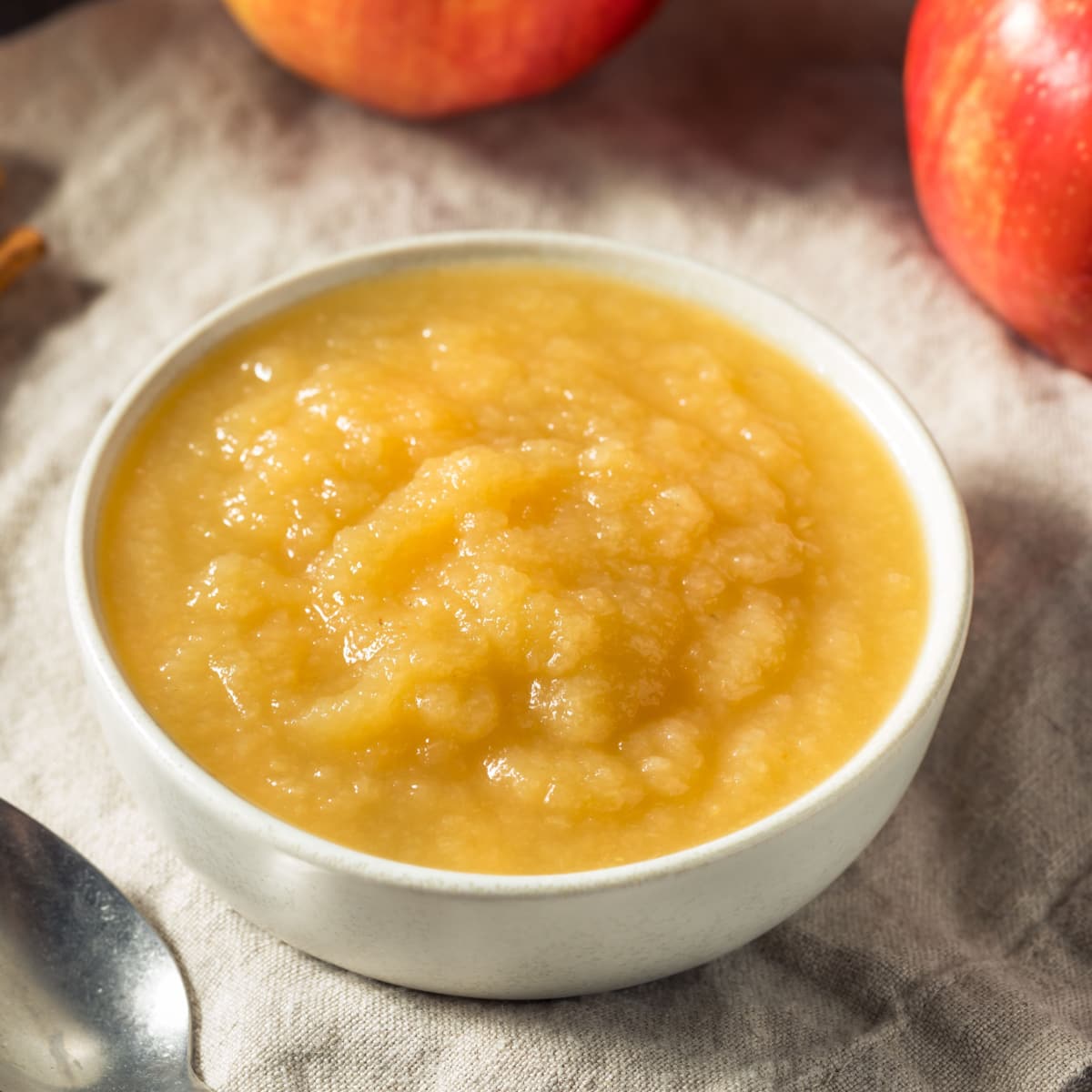
11. Applesauce
Applesauce is not just a kid’s snack. It’s a wonderful, moisture-retaining substitute for coconut oil.
Although it’s typically used as a substitute for butter, it especially shines in baking. With its natural sweetness, it can enhance the flavors while keeping baked goods moist and soft.
Perfect for muffins, cakes, and bread, applesauce offers a healthier, lower-fat alternative. Note that it can make the texture of the baked goods denser, so adjust if needed.
However, since it adds a hint of apple flavor, it’s best used in sweet and savory treats.
How to substitute: Use 1/4 less than the recommended amount in the recipe (for example, use 3/4 cup of applesauce instead of 1 cup of coconut oil). Adjust if necessary.

12. Safflower Oil
Step aside, sunflower oil, as safflower oil steals the spotlight!
This underrated oil is derived from the seeds of the safflower plant, offering a light, neutral taste. Its high smoke point makes it ideal for frying, sautéing, and searing, letting your ingredients shine.
When used as a coconut oil substitute, especially in baking, it ensures your pastries remain light and flaky.
Plus, safflower oil is rich in monounsaturated fats, which can benefit heart health.
How to substitute: Use a 1:1 ratio for any recipe.
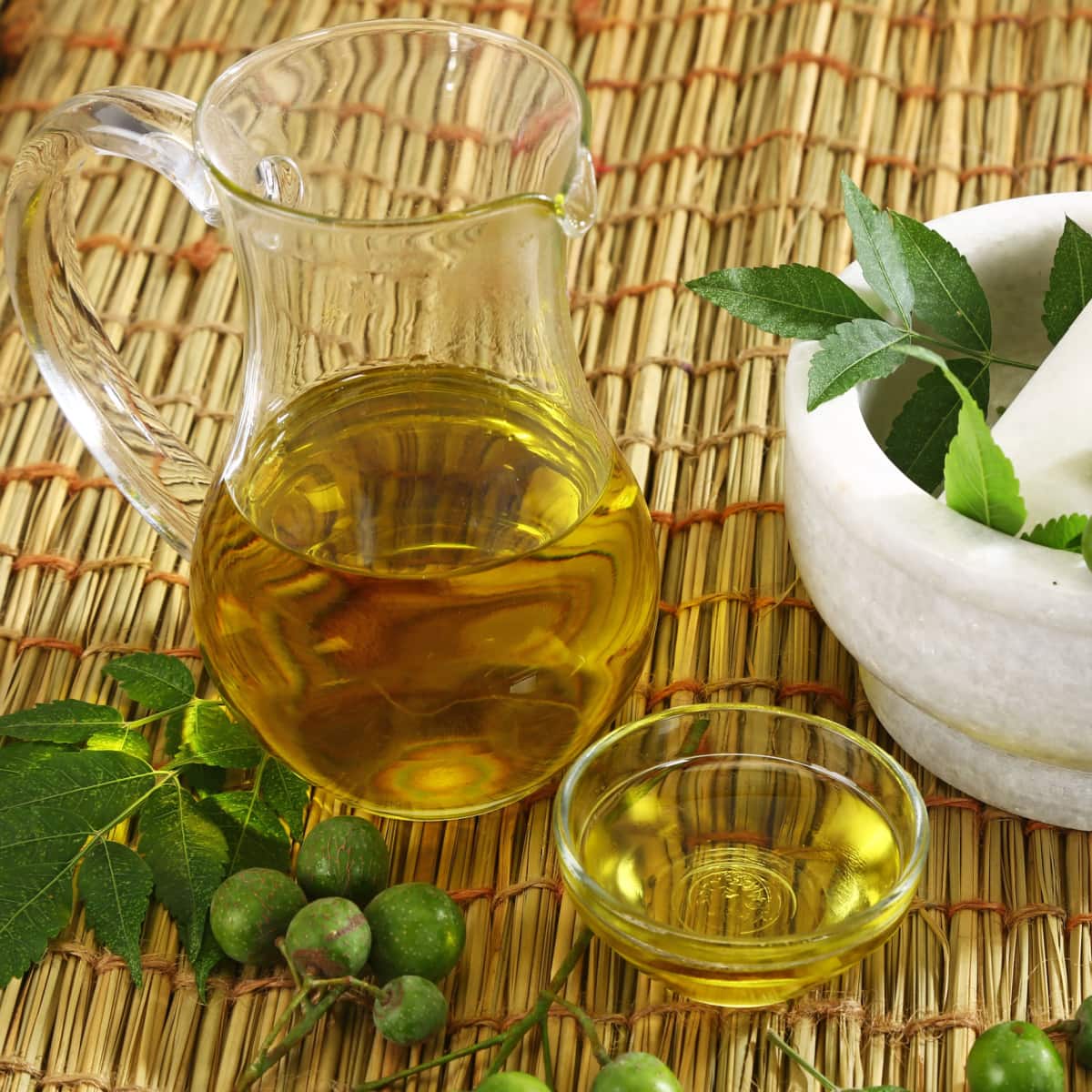
13. Neem Oil
Neem oil has a myriad of benefits for skin care, gardening, and medicine. However, it’s not commonly used in cooking due to its strong, pungent taste and aroma.
It’s not an ideal substitute for coconut oil in the kitchen. However, it shines in therapeutic and skincare applications.
Note: Always conduct a patch test before using neem oil extensively on the skin. If you’re looking at neem oil for its health benefits, consulting with a qualified professional is best.
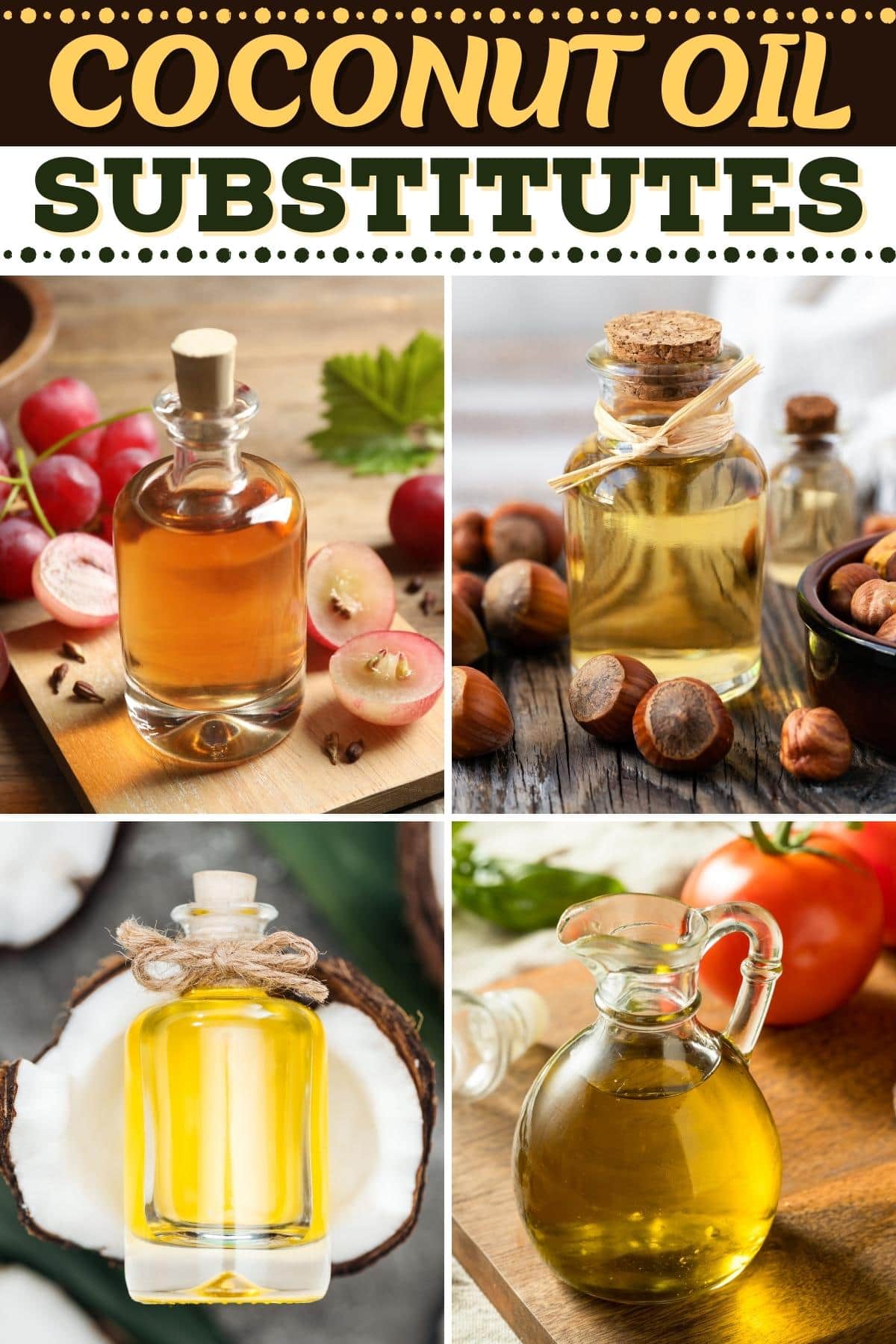

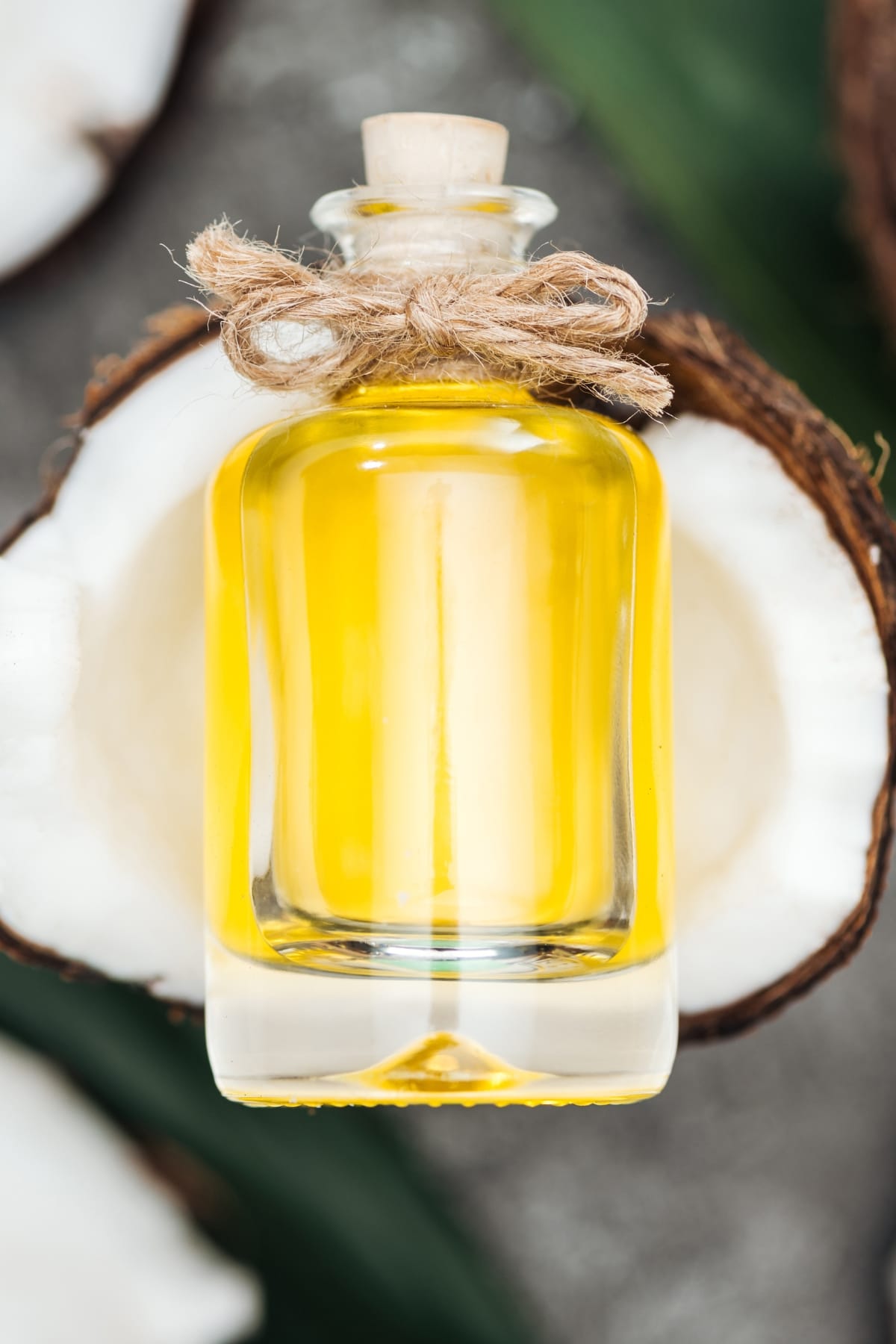


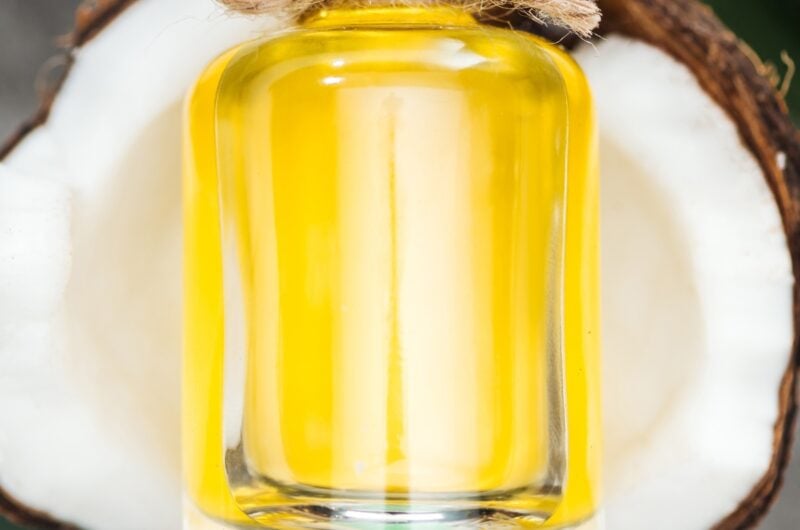






I love how many substitutes you’ve included! This blog post is super helpful and I really appreciate the little notes. Great resource, thanks for sharing!